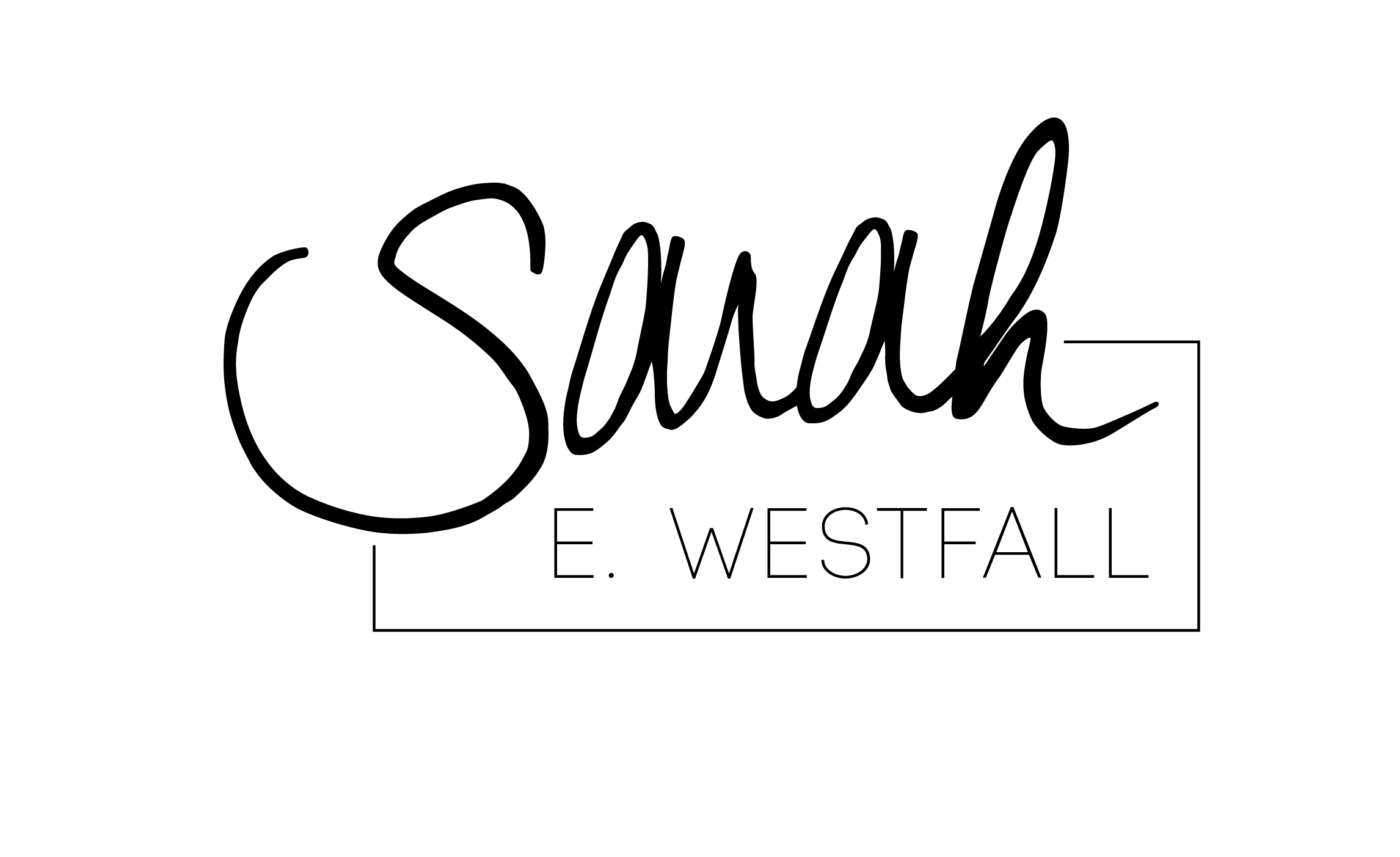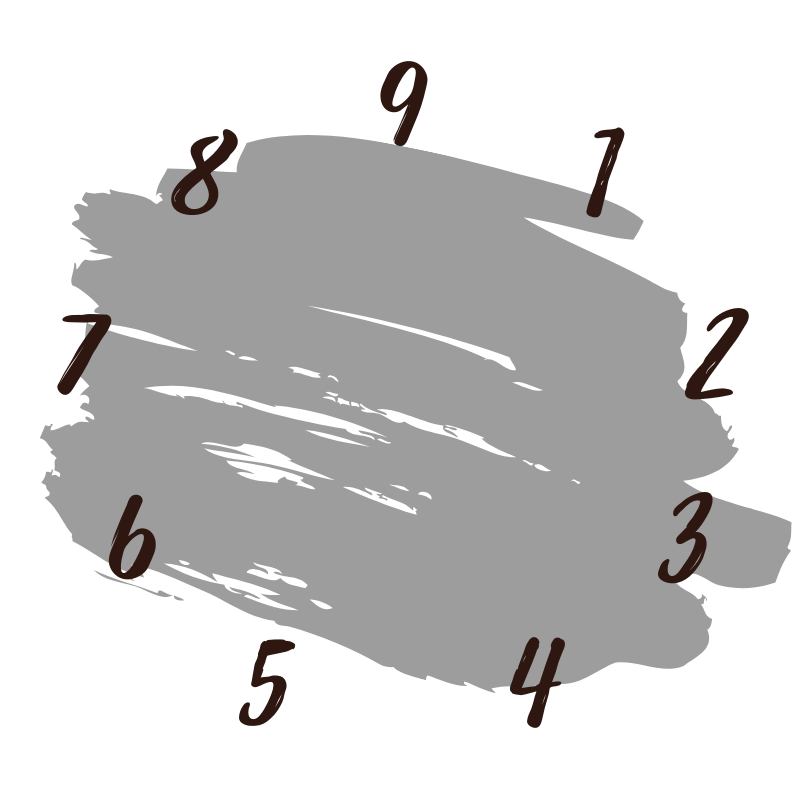3 Reasons Why I Love the Enneagram
About a year ago, my husband Ben started reading through the book The Road Back to You for work. I’d heard of this Enneagram thing through a few friends, but all the talk about numbers seemed more like advanced math than a source of personal development. And if you know anything about me, I don’t do the numbers.
But then Ben really started to get into it, which caught my attention. Ben has never been one to jump on the bandwagon of personality assessments. He’s always been slightly resistant to being boxed in, and assessment labels often made him feel constrained or that they were always “not quite.” When I was in grad school, I would try to pin his Myers-Briggs type, but he’d laughingly say, “I’m a mystery, dang it!”—to which I’d roll my eyes and type him anyway.
So when Ben started to talk about what he was learning through the lens of this Enneagram thing, I paid attention.
I borrowed The Road Back to You and began to read. What first felt a bit mystic quickly became eye-opening—spiritually, relationally, and professionally. It’s infiltrated all areas of my life, and apart from God’s Word, the Enneagram has become my go-to language for understanding myself, others, and how I relate to the world at large. Granted, I’m still fairly new to the game, but I love the Enneagram, and here’s why.
(NOTE: I won’t go into great detail about what the Enneagram is and how it works, so if you want a basic primer, check out this article from The Enneagram Institute.)
1. Coming face to face with myself—all of it.
What I both appreciate and detest about the Enneagram is its emphasis on our motivations. It peels away the layers of behaviors and preferences, and instead zeroes in on what it is that causes me to act and to think a certain way. And this process required me to take a long, hard look at the less-than-pretty pieces of my soul.
After much reading and listening to podcasts and conversations, I’m pretty confident that I’m an Enneagram 4. If you’ve heard anything about 4s, you know we’re a complicated sort—prone to melancholy, emotions, creativity, and occasional combustibility. We have this “nagging longing to be somehow different from who I am in order to be seen and loved, and constant comparison with others and the ideal version of myself I have created in my mind” (Beth McCord, @yourenneagramcoach).
And my first reaction to this description? What a narcissistic mess I am. I wanted to be anything but a 4. But the more I have read about the Enneagram, the more I’ve been able to accept certain truths about myself and live them out in a healthy, confident way.
For example, it is often my melancholy that causes me to retreat within myself to contemplate and reflect. And it is during these moments of retreat that I see God more clearly, that I write and dream and create, and that I come alive and invigorated to connect to and understand the world around me. While I have to resist the urge to get stuck in my melancholy, I have also come to realize that it is a beautiful gift.
But in order to get here, to this place of reckoning, I had to go through some pretty intense self-reflection—lots of prayer, much reading and asking questions of the people closest to me, and eventually acceptance of the way I’m wired.
2. The ability to have a common language
After reading The Road Back to You, I chased it with Suzanne Stabile’s The Path Between Us. And you guys—this book has been everything for my marriage and many of my friendships. None of these relationships were in trouble, in the traditional sense. But this book—and the Enneagram at large—has given me a common language for understanding not only myself, but also the people around me.
A friend recently asked me, “Why do you like the Enneagram?” My response: “You know, I think my favorite thing is that it has given me more compassion and understanding for others. If I know your Enneagram number, I know your basic motivations, your basic struggles, and I can apply what I know to your behaviors. I can have more grace because I understand your struggle.”
The Enneagram has given me not only a common language to get to know people, but also an increased compassion for what it is to be human—especially for those who are different from me. For example, my husband is an Enneagram 3—an achiever. He thrives on doing well and getting stuff done. But he also can feel failure deeply. So I’ve learned when he’s had a rough day at work, I need to meet him with understanding and encouragement. It’s NOT the time for me to remind him that he forgot to take out the trash, because he will only end up carrying the weight of what feels like another failure.
And while we are not supposed to type other people (we can’t really know each other’s motivations), Ben and I have also started to discuss what numbers we think our kids might be, which way they’re leaning. And while that might change as they mature, it has given us a better framework for parenting each of our children as individuals. Our conversations, our tone of voice, our discipline tactics have changed on a kid-by-kid basis, because we better understand how each of them are wired—even at ages 9, 6, 3, and 2.
The Enneagram encourages compassion, common language, and connectedness in our relationships—both personal and professional.
3. The freedom to be
I recently went to Magnolia Silos in Waco, Texas on a girls weekend away. Yes, it was everything you’d expect from Chip and Joanna Gaines, but what I loved the most was this sign that hung near the entrance to Magnolia Market:
The World Needs Who You Were Made To Be.
While I was initially resistant to what I learned about myself through the Enneagram (all I could see were the vices, the unhealthy manifestations of my number), I have since begun to embrace it, to own my 4-ness. And in doing so, I have discovered that living into who I am—instead of trying to be something I am not—provides so much internal freedom.
Last night, my husband and I were talking about the last few months and all the ways I’ve been leaning into the things I feel God pushing me toward, the ways I’ve seen Him show up. And in the midst of our conversation, Ben stopped me and said, “You know, I really want to tell you how great it has been to watch you lately. I feel like you are more you than you have ever been.”
Tears poured down my face. It’s one thing to feel like you’re living into your design, but it’s a whole other thing for those closest to you to affirm it. His words confirmed the freedom and the joy of a battle long fought to find myself, to see myself through God’s eyes, and to embrace that with confidence. And the Enneagram has helped me get here.
It’s been a bumpy ride. And it’s not over. But it’s a journey worth taking—and I encourage you to come along. If something I’ve said has piqued your interest in all things Enneagram, or if you want to discover more, I check it out. Don’t dismiss the numbers or call it voodoo until you’ve taken the time to consider its lens on the world and how it might help you better see you how God sees you.
Learn More
Below are some resources that have helped me discover my number and apply that to daily life, relationships, and my spiritual growth. I want to point out, however, that the best way to learn about the Enneagram and yourself is through dialogue (that’s kind of how the system was designed). So if you can find someone who knows it well and you can start to talk about it—do it.
Books
The Road Back to You by Ian Morgan Cron & Suzanne Stabile
The Path Between Us by Suzanne Stabile
Podcasts
That Sounds Fun with Annie F. Downs - EnneaSummer 2019 series
Typology
Sleeping at Last - He wrote songs based off each Enneagram number and brings in an expert to talk about each type.
The Happy Hour with Jamie Ivey - Episode #205 with Suzanne Stabile
Instagram Follows
Your Enneagram Coach (@yourenneagramcoach)
Enneagram & Coffee (@enneagramandcoffee)
Suzanne Stablie (@suzannestabile)




